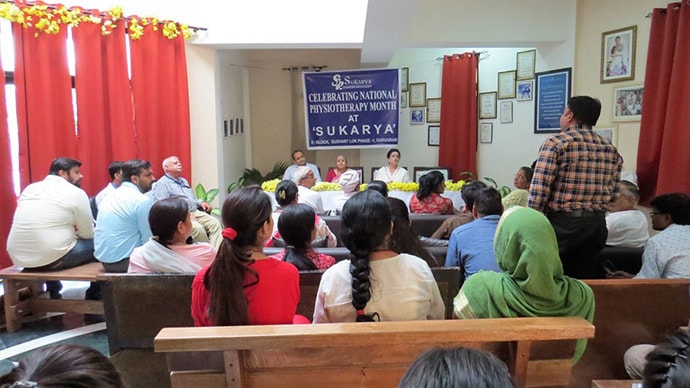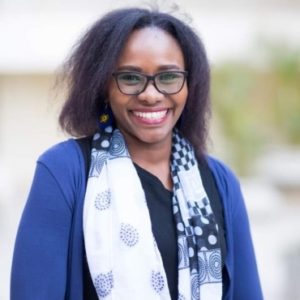Blog
Posted on March 27, 2023
By Ryan Smith, SIGN Fracture Care

SIGN Surgeon Dr. Sibiri Ballu. Photo: Chuck Bigger for SIGN Fracture Care
Traumatic injuries, including fractures, are a major cause of disability and death worldwide. The World Health Organization estimates that 20-50 million people are injured every year in traffic accidents, in addition to injuries caused by falls, workplace accidents, and violent conflict. In high-income countries, people with trauma injuries are treated in a fully equipped hospital, often on the same day the injury occurs. But in low- and middle-income countries (LMIC), access to fully staffed and equipped hospitals is much more difficult. Nearly 1 billion people in the world do not have access to a hospital with a reliable supply of electricity, let alone a fully equipped surgical suite.
Continue Reading
Posted on March 23, 2023
By Debadutta Dash, Sukarya USA

Sukarya Physiotherapy & Rehabilitation Centre. Photo: Sukarya
Abdul, a barber, runs a small shed in the Saraswati Kunj slum community with a mirror, chair, and few scissors. He says he migrated from Bengal in 2000, and after many attempts to find a job, he set up a shop independently. When his son had a fever, which didn’t go for a while, a field worker from Sukarya approached him and told him about the clinic and medical facilities in the locality. There he came across the physiotherapy unit and got counseling for the first time for his problems with arthritis. Since then, he has received medical aid from the organization for himself and his son and now calls it his family home.
Continue Reading
Posted on March 22, 2023
 Since Pangea began its seven-year funding partnership and ongoing friendship with Wendo Aszed and Dandelion Africa in 2014, she has been recognized internationally for the breadth, depth and success of her work in Kenya with all aspects that impact community life.
Since Pangea began its seven-year funding partnership and ongoing friendship with Wendo Aszed and Dandelion Africa in 2014, she has been recognized internationally for the breadth, depth and success of her work in Kenya with all aspects that impact community life.
Most recently, Bill Gates added to those honors by featuring her and her work in his November 22, 2022 blog – GatesNotes. While it can’t cover all that she has has achieved, it is a satisfying read and includes a YouTube link to Wendo’s narrative of her mission with Dandelion Africa. Please join us in congratulating our dear friend and colleague!


 Since Pangea began its seven-year funding partnership and ongoing friendship with Wendo Aszed and
Since Pangea began its seven-year funding partnership and ongoing friendship with Wendo Aszed and